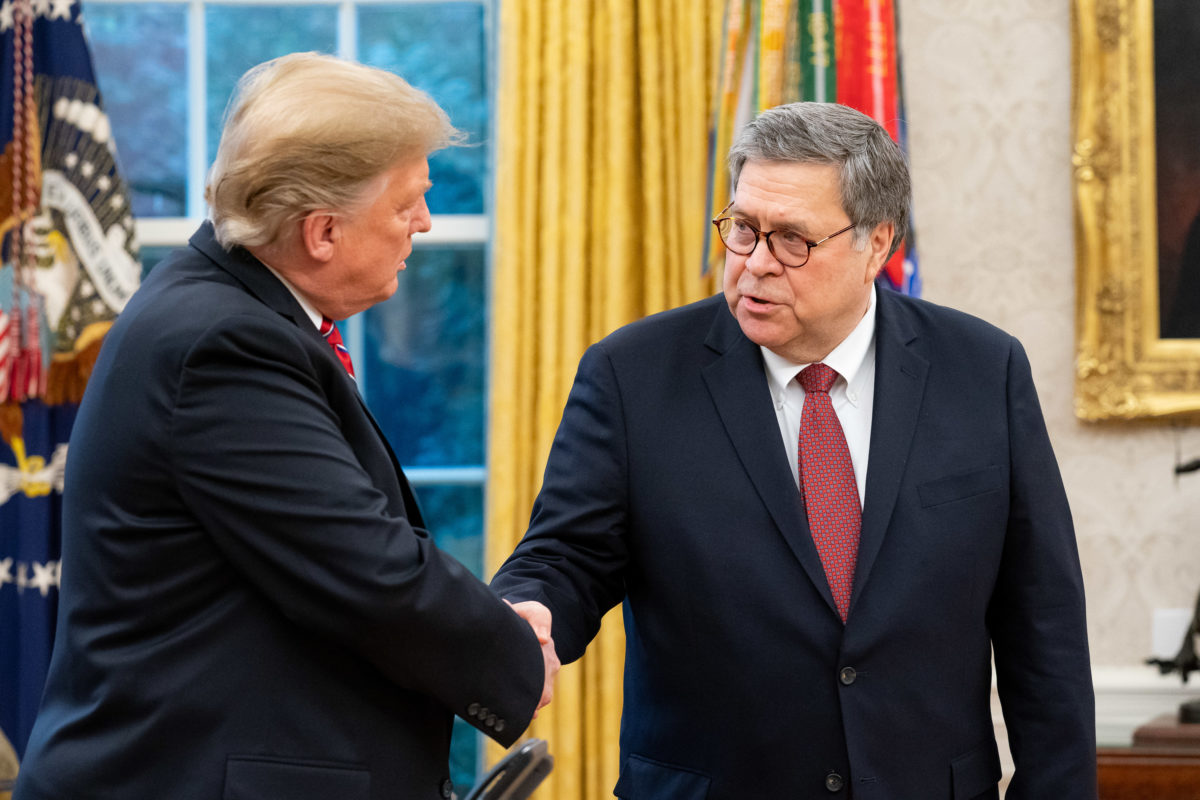American Oversight
An informed public,
a strengthened democracy.
William Barr’s Claims of Spying on the Trump Campaign Run Up Against Lack of Evidence

During a Senate hearing on Wednesday, Attorney General William Barr said that he believed that spying on the Trump campaign by the FBI “did occur.” He provided no evidence or basis for saying so, and less than two weeks ago, another office in the Justice Department confirmed to American Oversight that it had no records supporting one of President Donald Trump’s tweeted claims that Trump Tower had been wiretapped during the campaign.
Barr’s incendiary statements — particularly the use of the word “spying” — may fan the flames of conspiracy theories, peddled by the president himself, regarding the Mueller investigation and FBI surveillance of Trump. As American Oversight Chief Counsel John Bies noted the following morning on C-SPAN, the politically loaded nature of the term “spying” is evidenced by a fundraising email the Republican National Committee sent within 24 hours of Barr’s testimony using the subject line “The hunters become the hunted.”
In March 2017, Donald Trump sent a series of tweets claiming the Obama administration “had my ‘wires tapped’ in Trump Tower just before the [election] victory.” American Oversight filed Freedom of Information Act requests for records, such as warrant applications and court orders, of Trump Tower surveillance, eventually filing a lawsuit to force the records’ release. In September 2017, the Justice Department confirmed in a court filing that neither the National Security Division nor the FBI had any records supporting Trump’s claims. Late last month, the Justice Department’s Executive Office for United State Attorneys also said it had no such records.
Barr’s unsubstantiated remarks come as Congress and the public await the attorney general’s release of Special Counsel Robert Mueller’s report on 2016 election interference and potential obstruction of justice. Barr has said that he would release a redacted version within the next week, raising questions about what information he would be removing and what he would be providing to Congress. “Congress routinely gets ordinary classified information,” Bies said on C-SPAN, “so I don’t see why that type of information could not go to members [of Congress] or cleared staff.”
Bies also added that the investigation’s findings and the actions of the investigators should be subject to FOIA. After Mueller submitted his report to the attorney general, American Oversight filed FOIA requests for the full Mueller report. A few days later, Barr released a four-page summary of Mueller’s report, which is reported to be more than 300 pages long.
Part of Investigation: